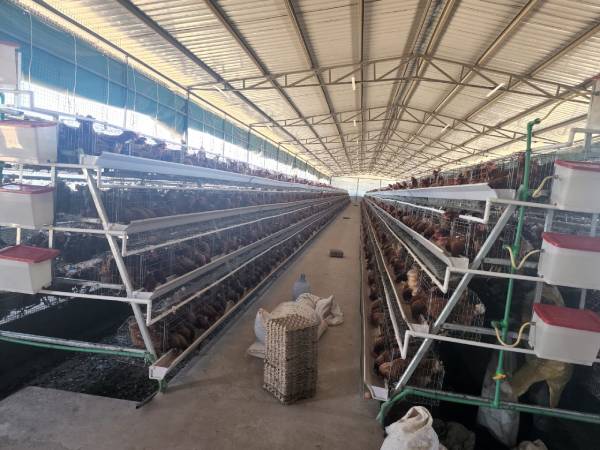Across Africa, poultry farming is becoming one of the most profitable agricultural sectors. Rising urban populations in Kenya, South Africa, and Tanzania are driving up demand for eggs, making it essential for farmers to adopt efficient systems. Traditional floor rearing cannot meet this demand, but layer battery cages offer a reliable solution for commercial egg production.
By integrating poultry farm automation such as automatic drinkers, feeders, manure scrapers, and egg conveyors, modern farms can increase output, reduce losses, and compete more effectively in today’s market.

What Are Layer Battery Cages?
Layer battery cages are organized housing systems where birds are kept in stacked rows. Each cage unit has feeders, water lines, and egg collection points.
Compared with open housing, battery cages:
-
Maximize space usage by housing more birds per square meter.
-
Improve hygiene, since manure is separated from birds.
-
Protect eggs from contamination and damage.
-
Simplify farm management, making large flocks easier to control.
This makes them ideal for commercial egg production in Africa, where farms often manage between 20,000–50,000 layers or more.
Poultry Farm Automation: Efficiency at Scale
Running a large poultry farm manually is expensive and inefficient. Automation reduces labor needs and boosts productivity.
Key systems include:
-
Automated feeders and drinkers for uniform nutrition.
-
Egg conveyors to minimize breakage.
-
Lighting programs to stimulate laying cycles.
-
Sensors and control panels for easy monitoring.
With automation, even smallholder farmers in Uganda and Zambia can scale up to commercial levels without excessive manpower.

Manure Scraper System for Waste Management
One of the biggest challenges in poultry farming is waste. Accumulated manure creates odors, attracts flies, and spreads disease. The manure scraper system in modern layer cages automatically removes droppings, keeping the environment cleaner.
Benefits include:
-
Lower ammonia levels and better air quality.
-
Healthier layers, leading to higher productivity.
-
Byproduct use, since manure can be processed into bio-fertilizer.
This system has been particularly effective in Ethiopia and Rwanda, where poultry manure is now sold to vegetable growers as organic fertilizer.
Climate-Controlled Poultry Houses
High heat and humidity are common across African regions. A climate-controlled poultry house prevents heat stress and supports consistent egg laying.
Equipment may include:
-
Cooling pads and fans to regulate temperature.
-
Fogging systems for dry regions.
-
Ventilation systems to ensure fresh airflow.
For farms in Tanzania or Sudan, these upgrades can mean the difference between losing production in hot seasons and maintaining steady egg supply year-round.

Profitability of Commercial Egg Production
Switching to modern layer battery cages brings significant financial rewards:
-
Higher egg output per bird.
-
Reduced labor costs through automation.
-
Improved egg quality, resulting in better market prices.
-
Steady supply, helping farmers secure contracts with supermarkets and wholesalers.
With careful management, African farmers can achieve investment payback within 12–18 months, making the system one of the most profitable agribusiness investments.
Case Study: South African Poultry Farm
In KwaZulu-Natal, South Africa, a commercial farm upgraded to 40,000-layer battery cages with automated feeders and manure scrapers. The farm cut labor costs by 40%, reduced egg breakages to below 2%, and increased sales to Johannesburg supermarkets. Within 14 months, the farm had fully recovered its investment.
The Future of Egg Production in Africa
As urbanization accelerates, Africa will need modern systems to meet growing egg demand. Layer battery cages with poultry farm automation are no longer optional—they are essential for competitiveness and sustainability.
Farmers who invest today will be leaders tomorrow, supplying not just local markets but also potential regional exports.
Conclusion
The shift from traditional rearing methods to modern layer battery cages is transforming Africa’s poultry sector. With systems that include manure scraper technology, automated feeding, and climate-controlled houses, farmers can achieve higher efficiency, better egg quality, and improved profitability.
For African entrepreneurs seeking long-term success, commercial egg farming with battery cages is one of the most rewarding agribusiness opportunities.
